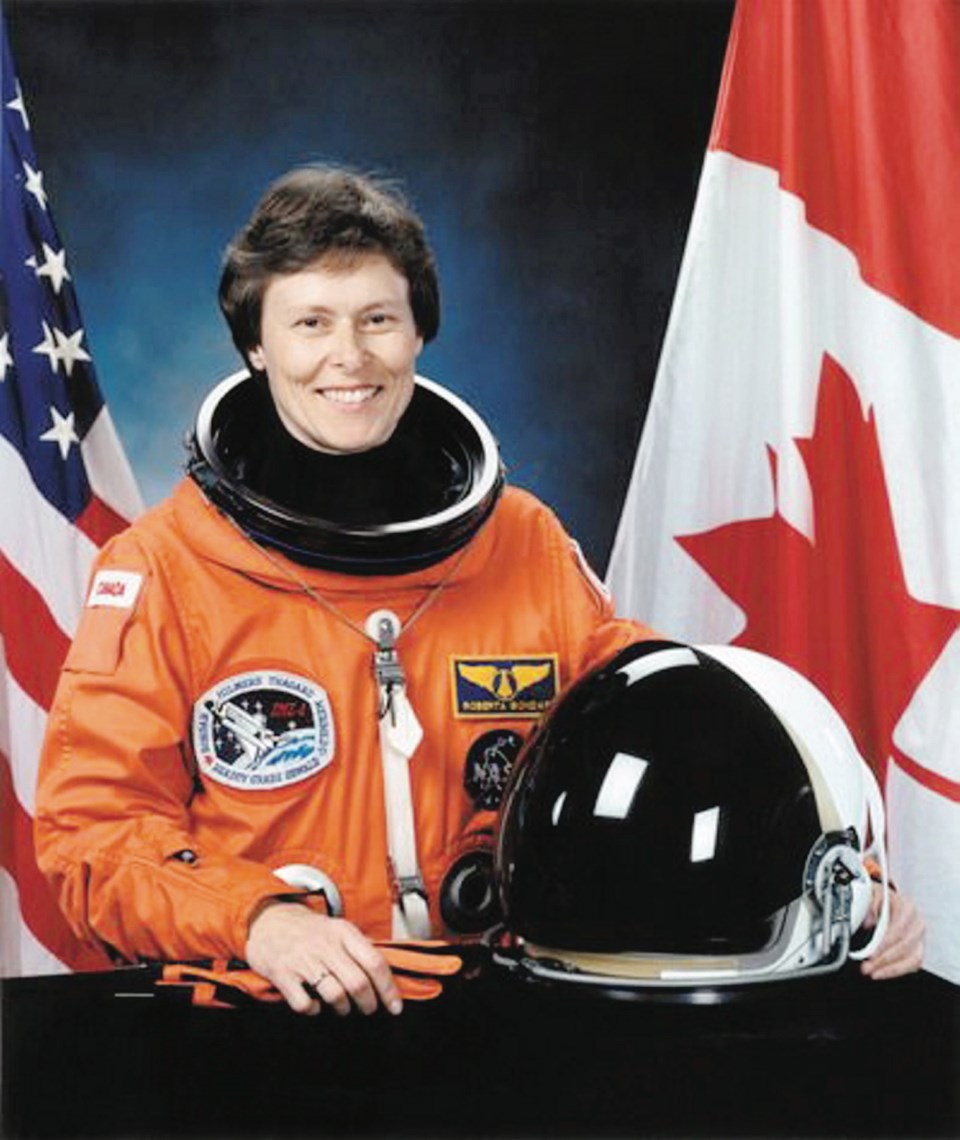What: Victoria Symphony (Explorations): Bondarsphere
When/where: Saturday, May 4, 8 p.m., Dave Dunnet Community Theatre (Oak Bay High School, 2121 Cadboro Bay Rd.)
Tickets: $25, students $20. Call 250-386-6121 or 250-385-6515; online at rmts.bc.ca; in person at the Royal Theatre and the Victoria Symphony Box Office (Suite 610, 620 View St.)
In 2016, the National Arts Centre Orchestra, in Ottawa, offered a special program titled Life Reflected, which comprised new pieces commissioned from four Canadian composers and inspired by four Canadian women whose stories were in some way exceptional. The multi-disciplinary event incorporated not just orchestral music, but singing, speech, recorded sounds, dance, photography and film. (The four pieces were later recorded for an Analekta CD, released in 2017.)
In an Explorations Series concert on Nov. 10, the Victoria Symphony performed two of those pieces: My Name Is Amanda Todd, by Jocelyn Morlock, about the Port Coquitlam girl who, in 2012, at age 15, committed suicide following a prolonged period of cyberbullying and online blackmail; and Dear Life, by Zosha Di Castri, based on a short-story collection by Alice Munro.
On Saturday, the orchestra will perform another piece from Life Reflected: Nicole Lizée’s Bondarsphere, which interprets the story of Roberta Bondar, the much-honoured neurologist, medical researcher, photographer, author and environmentalist best known as Canada’s first female astronaut.
Lizée, a Saskatchewan native who lives in Montreal, has been described as a “musical scientist.” Her highly original, inventive, very eclectic music draws on a wide range of musical idioms, cultural influences and electronic technologies.
Bondarsphere, a 16-minute work “for orchestra, soundtrack and film,” has eight short movements, one for each day Bondar spent on the space shuttle Discovery in 1992. Lizée’s aim, she writes, was to use “my language and esthetic to sonically and visually express the impact that [Bondar’s] accomplishments have had on the world.”
The “soundtrack and film” comprise extracts from Bondar’s speeches and other sources, drawn from her own collection of audio and video recordings. These clips, Lizée writes, “are captured and shaped into musical building blocks; stretched, pitch-shifted, spliced and woven together to create themes, basso continuos, chants, canons and chorales with which the live orchestra engages.” The live and recorded sounds are accompanied by a strikingly kaleidoscopic video backdrop and lighting design.
(The fourth work from Life Reflected, John Estacio’s I Lost My Talk, based on a poem by Mi’kmaw writer Rita Joe, was performed here in 2017 by the touring National Arts Centre Orchestra.)
Saturday’s program, conducted by Jean-Claude Picard, artistic director of the Orchestre symphonique de Trois-Rivières in Quebec, will include two other Canadian works, both composed in 2007 and both about 15 minutes long: Concerto pour orchestre, by the Serbian-born, Montreal-based Ana Sokolovi´c; and Légendes, a late work by the Québécois composer Jacques Hétu (1938-2010).
The longest work on the program, running about half an hour, is Rendering (1988-90), by the great Italian composer Luciano Berio (1925-2003). It is Berio’s fascinating “restoration” of a three-movement, highly experimental symphony Schubert sketched shortly before his death in 1828. (That unfinished symphony is usually called Schubert’s Tenth, though he had previously completed only seven symphonies.)
“Seduced” by the sketches, which he described as “fairly complex and of great beauty,” Berio fleshed out and orchestrated them in a convincingly Schubertian style, though he filled in their gaps with unabashedly modernistic “musical cement” that includes allusions to other late works by Schubert. His aim was to create a performable version of the unfinished work “without, however, trying to disguise the damage that time has caused.”
(The Victoria Symphony performed Rendering in 2012, with Tania Miller conducting.)
Two other concerts of note, both on Sunday, May 5:
At 2 p.m., the Civic Orchestra of Victoria will offer a wide-ranging program bracketed by Donizetti’s Don Pasquale overture and Smetana’s popular The Moldau, and featuring several players from its own ranks as soloists in works including Elgar’s Cello Concerto and Tehillim, a new piece by Canadian composer Anne Lauber (Dave Dunnet Community Theatre, $22/$18/$10, under 13 free; civicorchestraofvictoria.org).
At 2:30 p.m. (and again, on May 12), Via Choralis will perform choral works from the British Isles, some of them in collaboration with Kathy White’s Highland Dance Academy (St. Elizabeth’s Catholic Church, Sidney; Cordova Bay United Church; $20; viachoralis.ca). The program, spanning five centuries, ranges from folk songs and sea shanties to classical and contemporary works, including music by Charles Stanford and Benjamin Britten.



